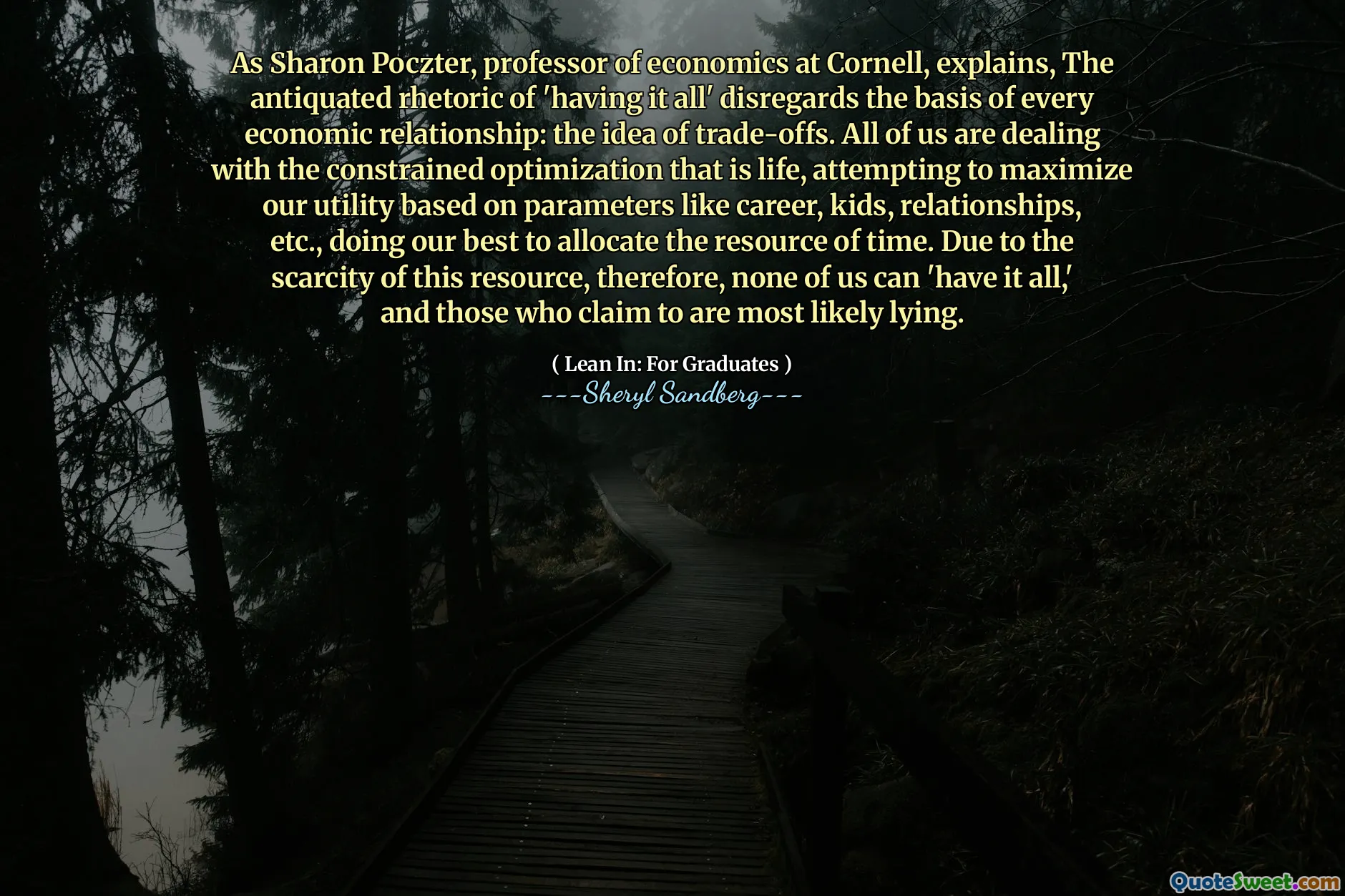
As Sharon Poczter, professor of economics at Cornell, explains, The antiquated rhetoric of 'having it all' disregards the basis of every economic relationship: the idea of trade-offs. All of us are dealing with the constrained optimization that is life, attempting to maximize our utility based on parameters like career, kids, relationships, etc., doing our best to allocate the resource of time. Due to the scarcity of this resource, therefore, none of us can 'have it all,' and those who claim to are most likely lying.
The quote emphasizes a fundamental truth about human life and decision-making: the inherent scarcity of time forces us to make difficult choices. In a world that often celebrates the myth of 'having it all,' it can be tempting to believe that balance and complete fulfillment are attainable in every aspect of life simultaneously. However, from an economic standpoint, every decision involves trade-offs. We allocate our limited time and energy among various pursuits—career ambitions, family responsibilities, personal growth, and leisure—each competing for the same scarce resource.
This perspective encourages us to rethink societal narratives that promote the idea of perfection in every domain. Instead of striving for an unrealistic ideal, embracing the concept of trade-offs allows for more intentional, values-driven choices. It leads to recognizing that sacrificing in one area may be necessary to excel in another, and that such trade-offs are natural parts of life, not failures.
Furthermore, acknowledging this reality can foster greater compassion and understanding, both towards ourselves and others, as we all navigate these universal constraints. It also highlights the importance of prioritization and time management, shaping how we set goals and pursue satisfaction. Ultimately, while the idea of 'having it all' is appealing on the surface, embracing the economic and philosophical truth of trade-offs can lead to more genuine contentment and realistic expectations, guiding us to design lives aligned with what truly matters.
---Sheryl Sandberg---, in her work, similarly discusses the importance of aligning personal choices with core values, recognizing that impossibility of perfect balance doesn't diminish fulfillment but instead channels focus towards what truly counts.







